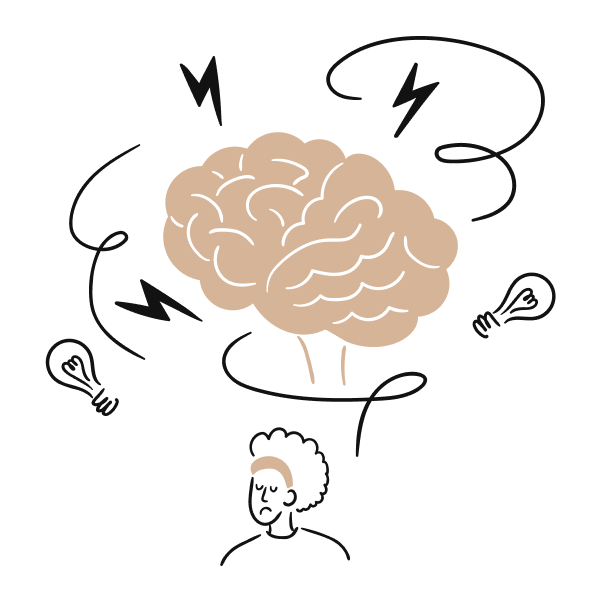There are several different types of anxiety disorders. This means that anxiety disorders have various causes and effects.
What are Causes of Anxiety Disorder?
- Genetics and personal life
To a small extent, anxiety disorders are genetic. Some family histories show more incidences of anxiety disorders and symptoms than others. Do your (grand)parents suffer from anxiety symptoms? You may find that certain events are extra stressful for you as a result. In addition, major life events can also cause anxiety disorder. Your temperament and social skills will also play a role in whether or not you develop an anxiety disorder. - Upbringing and support
Having an intense and secure bond with your parents is a wonderful thing. At the same time, childhood is a time when you’re still developing emotionally. This might make you feel anxious and uncertain about strangers and new situations. Having overprotective parents means that children may not learn how to deal with danger. This could cause an anxiety disorder. - Cognitive information processing
Sometimes anxiety disorders arise as a result of the way you process signals from your environment. You interpret perfectly normal events as dangerous and threatening. You overestimate the level of danger. - Major life event(s)
A major life event can cause an anxiety disorder. You might develop a disorder that occurs when you’re in similar situations or when you encounter triggers that remind you of the original event(s).
What Are Effects of Anxiety Disorder?
These are the typical effects of an anxiety disorder:
- Avoidant behaviors
Your anxiety disorder may have social consequences. For example, do you find yourself feeling sad and alone because you’re too afraid to take part in social activities? Your desire to avoid uncomfortable situations is a direct result of the fear you’re feeling.
- Underestimation
Anxiety can cause you to underestimate yourself. You’ll perceive more danger than is really present. You start thinking negative thoughts, such as deciding you’re not capable of handling the situation you’re in. - Poor health
Do you experience a lot of anxiety? If so, you’re constantly exposing your body to stress hormones, like adrenaline. This could cause physical symptoms like stomach pains and headaches. You could also suffer from trouble concentrating, irritability and insomnia, for example. - Performance
Serious concentration and sleep problems can lead to decreased performance at school and/or work. This may be the result of an anxiety (disorder). - Depression
You may suffer from depression. Did you suffer from anxiety as a child or young adult? Your risk of developing an anxiety disorder or experiencing depression as a fully grown adult will be greater as a result of this.
Help
Do you have persistent anxiety symptoms? Then it might be a good idea to speak to your physician or a psychologist. A psychologist can help you to manage your anxiety disorder.
-
Do you have questions about treatments? Call us on +31207717996 and we will immediately give you personal advice and help creating a treatment plan.
Fear is a useful emotion that warns us of danger. The goal is not to get rid of this emotion, but to learn to deal with it differently.


 Nederlands
Nederlands




